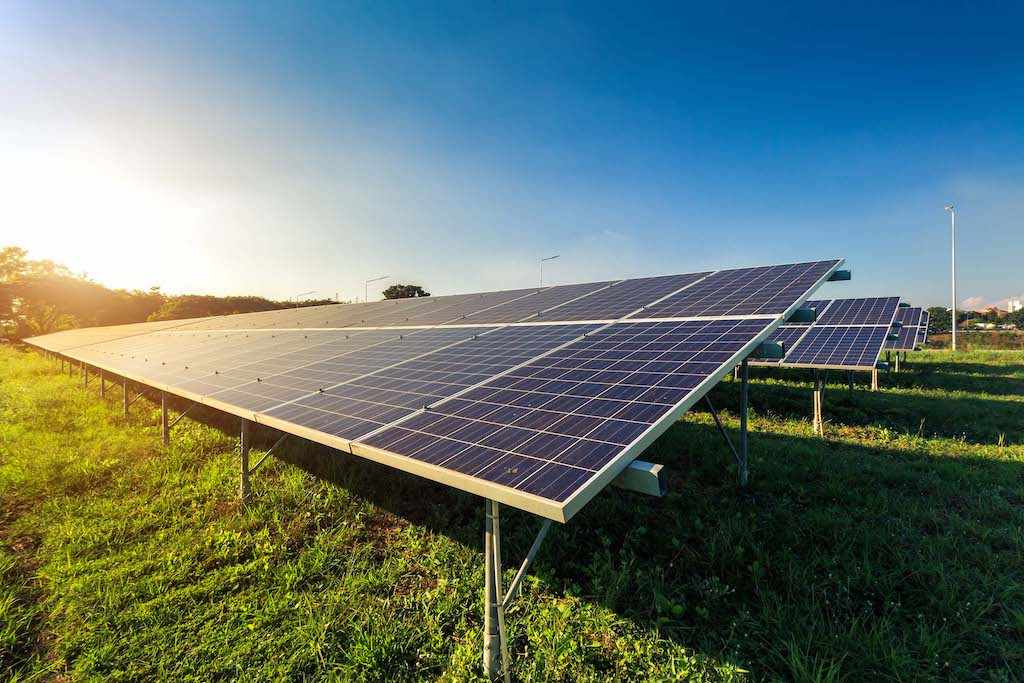Popular Reads
Top Results
Can't find what you're looking for?
View all search resultsPopular Reads
Top Results
Can't find what you're looking for?
View all search resultsBuilding a solar powerhouse
We need a broad and bold electricity market reform, not a piecemeal policy, and strong national leadership to tap our huge solar power potential.
Change text size
Gift Premium Articles
to Anyone
W
e welcome a recently released Energy and Mineral Resources Ministry regulation on net power metering, which allows residential customers to fully credit the power produced by their roof-top solar energy system to their electricity bill to the state electricity monopoly (PLN).
The new tariff policy, however, is far from sufficient to develop Indonesia into a solar powerhouse. We need a broad and bold electricity market reform, not a piecemeal policy, and strong national leadership to tap our huge solar power potential.
We have often flouted our potential solar power potential of 208,000 megawatts (MW) but we have so far tapped not more than 150 MW, while Vietnam has developed 16,640 MW or almost 25 percent of its primary energy mix, and Thailand over 3,500 MW. Both countries have pledged to double their solar power capacity within the next few years.
Solar panel prices should be more competitive to increase market demand. The problem is that most of the basic materials for photovoltaic (PV) panels, such as solar cells and silica, and such components as power inverters, a power electronic device or circuitry that changes direct current (DC) to alternating current (AC), must still be imported.
As the manufacturing of PV panels needs economies of scale to cut their costs, the government should ease the local-content requirements for PV panels. The government should also encourage the use and disbursement of bank loans for solar energy systems. Yet, more importantly, there is a conflict of interest for PLN in the promotion of residential rooftop solar power systems, so the government should simplify the licensing system.
A recent study by Bloomberg Philanthropies and the Institute for Essential Services Reform (IESR) concluded that with a bold reform program, Indonesia’s national solar program could attract up to US$14.4 billion in investment to generate 18,000 MW of solar power within the next few years and help the country meet its 2025 renewable energy target of 23 percent of its total primary energy mix, up from less than 15 percent now.
Solar power is the best chance for rapidly expanding renewable energy in the country because of their easier deployment, enormous potential and more competitive prices compared to hydropower, the construction of which often requires the eviction of local residents from their homes, and geothermal, which is located mostly in primary forests.
The United Arab Emirates’ (UAE) Masdar company is building a 225-hectare floating solar PV plant on the Cirata reservoir in West Java with a capacity of 145 MW, and Singapore's Sunseap Group is preparing a $2 billion floating solar farm and storage system on a reservoir on Batam, Riau Islands, with a capacity of 2.2 gigawatt-peak (GWp) in a joint venture with the Batam Development Authority.
The government has also allowed Sun Cable’s Australia-Asia PowerLink to build a giant solar power link between Australia and Singapore, which will have a $2.5 billion investment spillover in Indonesia. The project will generate solar power from a solar farm and will transmit it from Darwin to Singapore starting in 2028.
But more bold policy actions are needed to give the right market signals to investors. Uncertainty in the national electricity market, especially regarding the coal-exit schedule, is driving investment risks.










